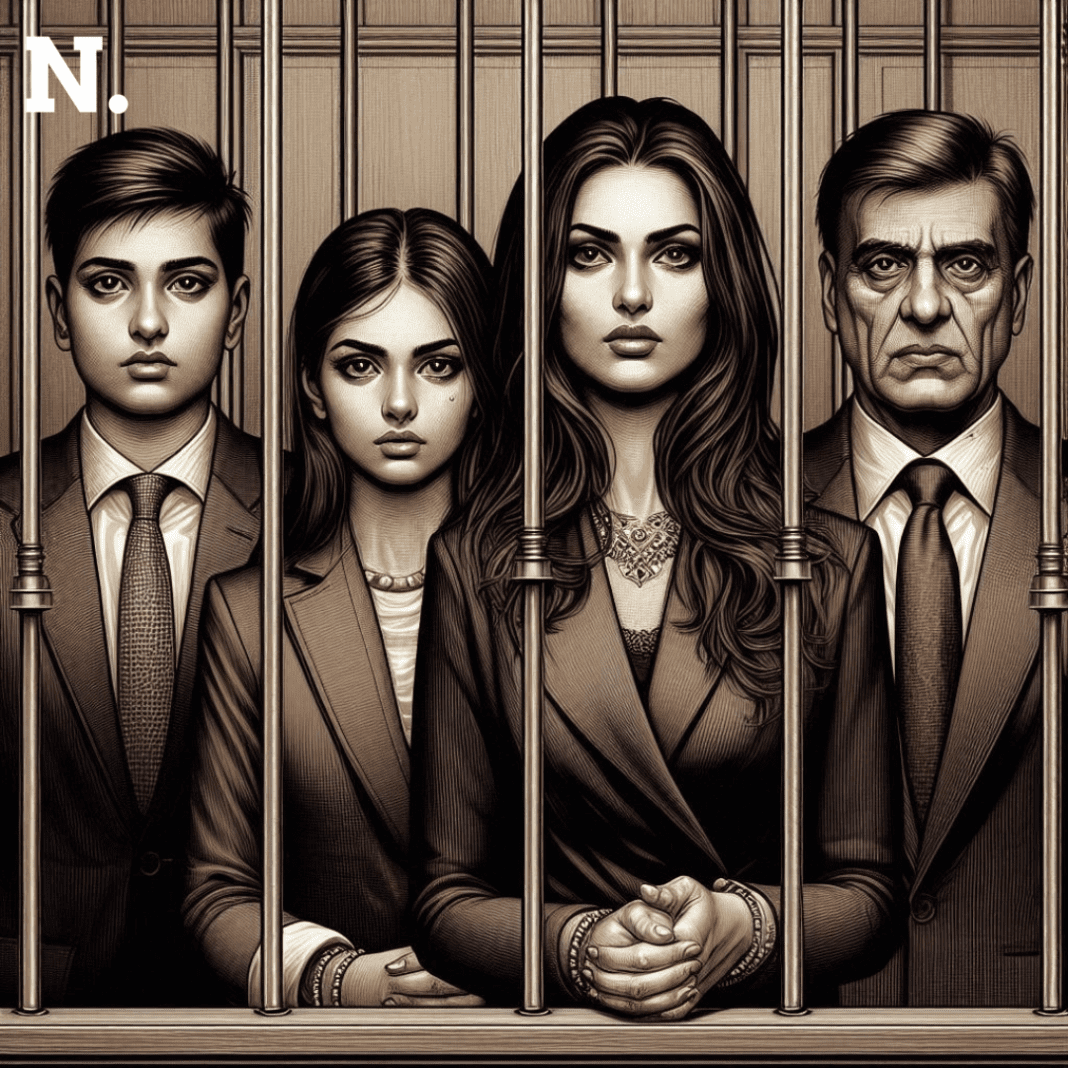The four Hindujas family members, who are billionaires and own the opulent Geneva mansion where Indian staff were ruthlessly exploited, were sentenced to four and a half years in prison in a sensational courtroom decision. The family, whose estimated fortune is £37 billion. Was put at risk despite being cleared of human trafficking charges. But Prakash Hinduja, his wife Kamal, their son Ajay, and daughter-in-law Namrata. Were convicted on multiple other serious counts and sent shock waves through the family.
Hindujas Verdict Case: Exploitation and Prosecution
Ajay and Namrata Hinduja received four-year prison sentences, while Prakash and Kamal Hinduja were sentenced to imprisonment for four years and six months each. A Geneva judge decided their fate in the climax of a high-profile trial from which Prakash and Kamal noticeably stayed away, citing health reasons.
Background: Many of them relied on the Hinduja family’s practice of importing domestic workers from India to their Swiss home. Prosecutors accused the family of paying their employees minimal wages and severely limiting their freedom. The allegations included taking away passports, and monthly salaries were between 220 to 400 Swiss francs, equivalent to $250-450, a small fraction of the minimum wage in Switzerland.
Geneva prosecutor Yves Bertossa said the Hindujas had preyed upon the fragile position of the employees to cut costs. “They’re profiting from the misery of the world,” Bertossa pronounced, as he requested five and a half years of prison time for Prakash and Kamal Hinduja in his final argument. He also told the court how far removed the poor workers were from their millionaire employers but wasted little words to say that it added up to systematized abuse.
Hindujas: Defense Arguments
Workers are argued by defense lawyers to be well cared for. Not feeling confined, and having the discretion to leave the property. “We are not facing mistreated slaves,” said Nicolas Jeandin, counsel for the family. Another lawyer for the family, Robert Assael, threw in a rejoinder: “The staff is grateful to the Hindujas for the fact that they live much better than they would have had if they were in India.”.
Counsel for Ajay Hinduja, Yael Hayat, condemned the indictment as “excessive” and claimed. That it had nothing to do with justice but social justice. Romain Jordan insisted that the prosecutors ignore extra payments. Which were significantly more than the salaries, made to employees on behalf of Namrata Hinduja.
Out-of-Court Settlement
The Hindujas had earlier settled the complaints of the three employees who filed the complaints out of court in a confidential agreement. The court allowed the prosecution to continue the case against the siblings due to the serious nature of the charges. The case brought into centre stage the plight of domestic workers and the responsibility of rich employers.
Implications and Reactions
The Hinduja Group—with interests spanning oil and gas to banking and health—showed operations across 38 countries. With a workforce of near 200,000 people. The verdict casts a shadow on the family’s worldwide business empire. Opening up issues related to ethical standards and workers’ treatment.
The Hindujas have claimed that the prosecution fabricated its case against them since then. They argue that no employee was underpaid in terms of salary. As part of their defense against these accusations.
This court decision should be a timely reminder of the fair labor practices necessary to safeguard the rights of all workers. Regardless of their origin and the wealth of their bosses. Concretely speaking, the conclusion of the case sent a very strong message: one of accountability and justice in the treatment of domestic staff.
Conclusion: Wealth and Justice
The sentencing of a member of the Hinduja family has been a high-profile legal battle. It therefore is much essential in ensuring ethical treatment of workers. And puts across the fact that even the richest man/woman is not above the law. Watching the world over, the legacy of Hinduja. Is now being maced by a lesson for humankind—of power, privilege, and pursuit of justice.





